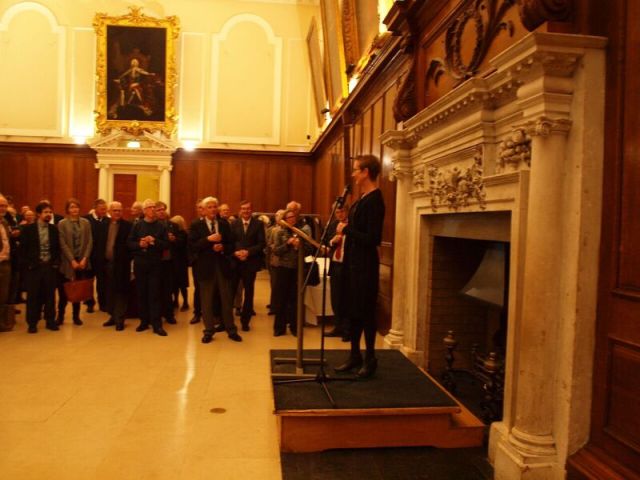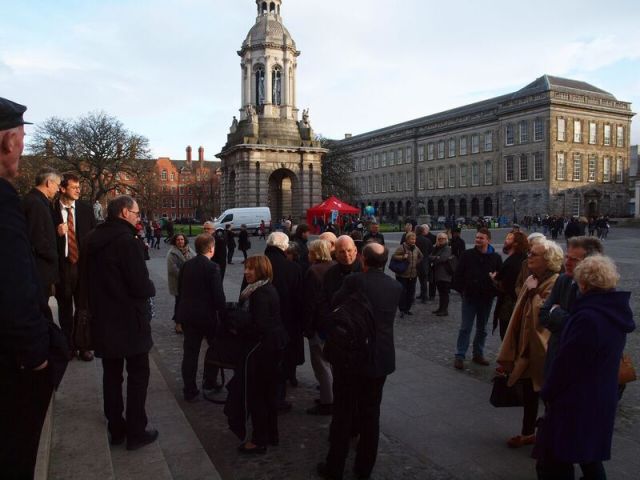Sunday, 19 February 2017, 11am
Service in St.Finian’s Church: Guest Preacher is Archbichop Diarmuid Martin, Catholic Church of Ireland (second from left).

During the service the Volunteers from the EKD who are responsible for the “Truck” (Stories on the Road, European Roadmap) receive a farewell blessing. The Guests from the EKD, Dr. Stephanie Springer and Dr. Hans Ulrich Anke, are involved in the service as well.


We listen to a Song, performed by Anna and Fabiola and Johanna. The Opening and the End of the Service are marked by music for Trumpet and Organ (Wolfgang and Werner)


The service is followed by a reception in the Lutherhaus, prepared by Yvonne and her team. Lots of conversations, laughter and deep thoughts about Reformation and Churches today and finally Goodbyes conclude the Reformation Weekend.

Thanks be to God for a good weekend, for the people, for deep thoughts and for friendship between and across different denominations!














 Trinity College Dublin, Front Square: We expect the “Truck” from the EKD – Reformation stories on the Road – exactly here. Opening: Friday, 17th February 4pm. Be there! Have a look at
Trinity College Dublin, Front Square: We expect the “Truck” from the EKD – Reformation stories on the Road – exactly here. Opening: Friday, 17th February 4pm. Be there! Have a look at 